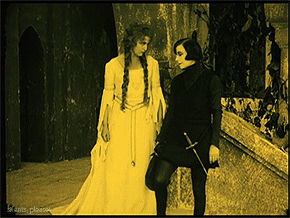First, you must surrender yourself to the rewrite process, an ongoing cycle of feedback and revision that I outlined in the post This Is What A Rewrite Looks Like. I know you kinda hoped your first draft was pretty close to the final draft. It's not. Don't believe me? Try this...
Find 5-10 people to read your script and give you notes. These are not the glowing notes you get from your mother ("I love it! You're a genius!) or the indifferent and vague praise you get from your boyfriend ("Yeah. It's cool I guess.") Rather, these are the detailed, engaged and honest-but-supportive notes you get from your collaborators.
These collaborators could be the other students in a class or the other members of a writer's group. They could be your agent, manager, and attorney. They could be the actors, editors, cinematographers and producers in an online group like Filmmaker's Alliance. The key is that these collaborators have some experience reading scripts, that you trust their judgement, and that they have good reason to put in the time and effort. This "good reason" is often just your willingness to give feedback on their scripts in return.
As you are listening make sure that you write down ALL the notes you get, even the ones that you don't agree with and especially the ones that seem to come up again and again. You'll collate and sift these notes later, but for now just gather as much feedback as you possibly can. If you can, find a perceptive and sensitive person who is willing to type up written notes, you've struck gold.
(For an expanded discussion of how to receive notes in a productive way, check out Getting and Processing Feedback. Then when you are in a position to give notes on other people's screenplays, check out How to Give Feedback.)
After you've re-read your script in one sitting, it's a good idea to ask yourself some tough but important questions. You can find examples of these questions in our handy Rewrite Questionnaire. 95% of feature screenplays submitted to festivals and contests, as well as to agencies and managers, fail in three areas: Character, Tension, and Development. Our 20 questions will help you focus on these areas as your rewrite.
If this is your 2nd or 3rd draft you may want to get a bunch of actors (or just people who are good at reading out loud) and have a table read. Feed your guests lots of wine and snacks as they read; make a party out of it. Actors especially are not shy about giving feedback, and you may very well learn more about your script in one night than you have in months.
Once you are finished gathering lots and lots of feedback, you are ready for the next step...
(For my WEEK 2 lecture and the next step in the rewrite process, check out Rewrite: Revisit the Story)





